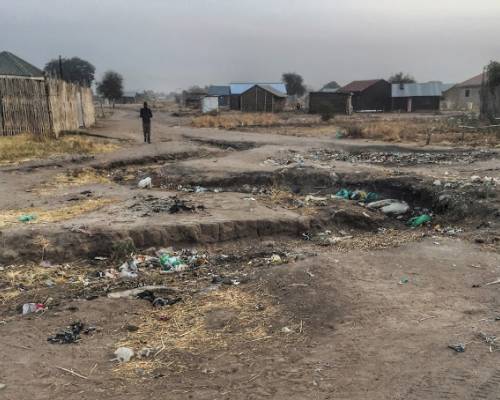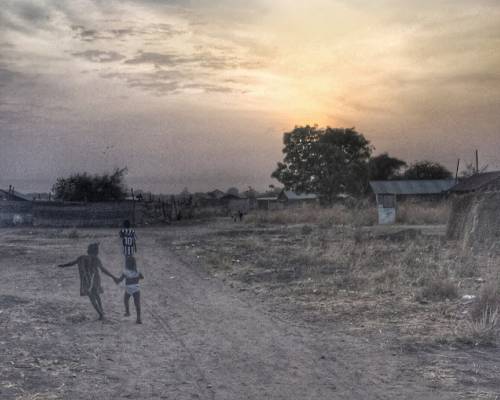South Sudan in turmoil again
11 July 2016 - RPS Partnership
RPS Partnership has been monitoring South Sudan closely and the latest violence has now shaken the fragile peace that was holding in the area. We have recent news that the airport is not officially closed but that no flights are flying in or out.
Recommendations
We are recommending that lone travellers find their way to a large hotel with good security or ask for assistance from the larger Non Governmental organisations working in Juba. Stay in the compounds and have your grab bag ready if you have to leave quickly. If you have the opportunity to leave on an evacuation flight, then take it. Stay in touch with your Embassy and be ready to move if they tell you to.
Monday 11 July afternoon update from Juba: The main Embassies are closed and locked down with the main airlines suspending flights. The airport is open and people have 2 choices; hunker down or evacuate which is still possible.
Road movement in Gudele, Jebel and downtown as well as the Tompking area (ministries area) is fraught. Machar's base is in Jebel and is now drawing plenty of fire from local forces.The foreigners in Gudele II are hunkered down and staying put.
Another key area for expats is around the Presidential Palace, close to the airport.
All embassies are now evaqcuating all non essentials, so there will be limited embassy access.
Here we have an abridged article from the Guardian (Jason Burke) outlining what is happening at present.
More than 300 dead as South Sudan capital is rocked by violence
More than 300 people are reported to have been killed, including many civilians and a Chinese peacekeeper, in renewed fighting in South Sudan’s capital Juba, raising fears the country is returning to civil war.
The new clashes originally broke out on Thursday and Friday between troops loyal to Salva Kiir, the president, and soldiers who support the vice-president, Riek Machar. Observers say it is clear that the peace deal concluded last August between the two main factions in the young country is only holding “by a thread”.
After a lull on Saturday, when South Sudan was to celebrate the fifth anniversary of its independence from Sudan, the fighting flared again on Sunday and Monday, raising fears of a return to all-out civil war.
Witnesses reported hearing major blasts and heavy gunfire on Monday morning (today), while the United Nations mission in the country said on Twitter that clashes had restarted near its compound in Jebel.
The council’s 15 members demanded Kiir and Machar “genuinely commit themselves to the full and immediate implementation of the peace agreement, including the permanent ceasefire and redeployment of military forces from Juba”.
Britain’s deputy permanent representative, Peter Wilson, said before the meeting it was essential to “unequivocally condemn the violence happening in Juba”. “We have called for an arms embargo, this situation underlines the need for that,” he added.
France’s UN ambassador, Francois Delattre, also voiced dismay. “We are extremely worried about the situation ... it is a result of a lack of political will on the side of the parties ... The key word is pressure, to urge the parties to take their responsibilities.”
The US on Sunday pulled out all non-essential personnel and urged an end to the fighting.
State Department spokesman John Kirby said: “The United States strongly condemns the latest outbreak of fighting in Juba today between forces aligned with President Salva Kiir Mayardit and those aligned with first vice-president Riek Machar Teny, including reports we have that civilian sites may have been attacked.”
Ban Ki-moon, the United Nations secretary general, said earlier he was “shocked and appalled by the heavy fighting … in Juba” (pdf) and called on Kiir and Machar to “do everything within their power to de-escalate the hostilities immediately”.
“This senseless violence is unacceptable and has the potential of reversing the progress made so far in the peace process,” he said.
The agreement ended two years of hugely destructive civil conflict, which killed tens of thousands of people.
Aid workers have reported hearing heavy artillery as well as small-arms fire around Juba. Military helicopters have been seen in the air. The immediate cause of the violence was not clear on Sunday night.
South Sudan’s civil war was fought largely along ethnic lines with the president, a Dinka, and the vice-president, a Nuer, drawing support from their respective tribes. The two men have yet to integrate their forces – a key part of the peace deal.
Sunday’s fighting hit a UN camp for displaced people affected by the violence, according to officials. Up to 2,000 civilians are believed to have sought sanctuary in the camps in recent days, which have been hit during the fighting by small-arms fire and rocket-propelled grenades.
“The United Nations Mission in South Sudan [Unmiss] is outraged at the resumption of violence in Juba [on Sunday] which is severely impacting on the civilian population … Both Unmiss compounds in Juba have sustained impacts from small arms and heavy weapons fire,” according to a statement from the UN, which has been repeatedly criticised for failing to protect civilians in South Sudan.
An official in the main UN camp, who insisted on anonymity for fear of retribution, described the situation as “really very bad”. The official said: “We have a lot of casualties this side, I think around 50 to 60 besides those of yesterday. We have civilian casualties. We have rocket-propelled grenades that have landed in the camp, which have wounded eight people.”
Details of the actual fighting were unclear. A Reuters witness said gunfire was heard in the Gudele and Jebel suburbs, near the military barracks hosting troops loyal to Machar. William Gatjiath Deng, a spokesman for Machar, said government forces attacked a rebel base in the Jebel area of the capital on Sunday morning. “Three helicopter gunships have just come now and bombed our side,” Deng said.
However, the information minister, Michael Makuei Lueth, told the BBC the government troops were reacting to an attack on their forces at a checkpoint. “The situation is normal and it is under full control”, he said.
Continuing violence and insecurity – as well as poor harvests – has left about half of the 11-million population of the country threatened with famine. It has also disrupted oil production, by far the government’s biggest source of revenues, exacerbating already severe economic problems.
The UN says 1.69 million South Sudanese are displaced within the country and another 712,000 have fled into neighbouring countries. The UN humanitarian plan for South Sudan has received only 27% of the $1.29bn (£900m) required. The country’s opposing factions have been stationed in Juba since April as part of a peace deal signed last year to unite the warring sides. They are meant to hold joint patrols in the city, but have yet to work together in Juba and instead remain stationed in separate areas.
The two leaders issued a joint call for calm after Friday’s fighting, which began outside the presidential compound where Kiir and Machar were meeting and soon spread through the city. South Sudan is at risk of returning to full-scale war because the two sides are not showing willingness to implement security arrangements, the International Crisis Group said last week.
In a statement on Friday, the joint monitoring and evaluation commission overseeing the ceasefire said the fighting in many parts of the country could be in flagrant violation of the peace deal, while security in the capital was deteriorating.
As a result of the rising tensions in Juba, international organisations have limited their movements in recent days. The UN mission said it had stepped up patrols around its base, but would not increase patrols in the capital.
Contact [email protected] if you are planning to travel to the region, so we can assist you to prepare with training for your staff as well as contingency planning and risk asssessment planning.
Photos: Juba, South Sudan. With thanks to @roadrunnertns Mark Reading



